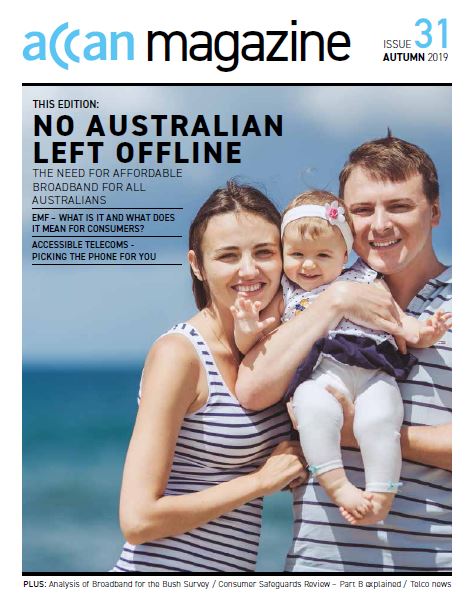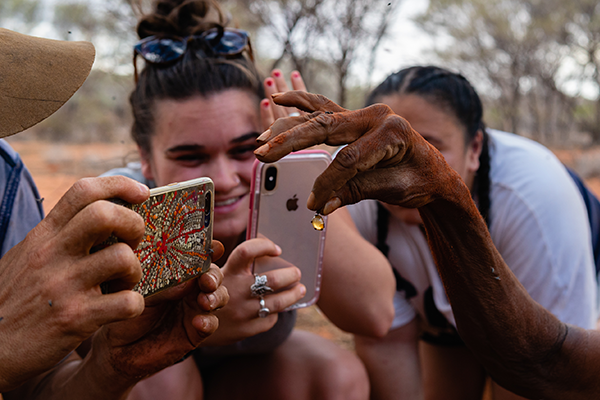What is a video on demand subscription service?
A video on demand subscription service provides consumers with the ability to watch videos online for a regular subscription fee, usually monthly. The term ‘videos’ can include TV shows and movies.
What accessibility features are common to playing videos online?
There are two main features that support the playback of online videos in an accessible way:
- Captions: this is the text version of speech and other sound that can be provided on videos. Captions can be either open (which means the captions are always on) or closed (which allows the consumer to turn the captions on or off).
- Audio description: this is when spoken narration is used to describe visual content. Narration is usually included between bits of dialogue and can be used to describe visual elements such as scenes, settings, actions and costumes.
In addition, the World Wide Web Consortium (W3C) has produced the Web Content Accessibility Guidelines (WCAG) 2.0 to make sure that creators of web and app content can include accessibility features such as captions, audio description and an accessible interface for assistive technology users. A simplified version of this standard is also available.
How do different subscription services compare?
According to research conducted by Curtin University in Perth, the following table highlights the five most popular subscription services in Australia and their accessibility as of mid-2016. More detail on these services are highlighted in other Tip Sheets.
| Provider | Captions? | Audio description? | WCAG 2.0 compliant? |
| Netflix Australia | Yes (most titles) | Yes (limited titles) | No |
| Stan | Yes (some titles) | No | No |
| Quickflix | Yes (few titles, difficult to identify) | No | No |
| Presto | No | No | No |
| Foxtel Play | No | No | No |
The video I want to play is not accessible. What are my consumer rights?
Currently there is no specific law in Australia that applies to the accessibility of subscription video on demand services. There are, however, some important facts to be aware of which may help support your viewing choices and can potentially provide an opportunity to raise concerns about this issue.
- Policies and legislation in the United States require high levels of accessibility in video on demand services. As such, USA-based services such as Netflix feature more accessibility and are likely to continue increasing their accessible content.
- Broadcast (‘free-to-air’) television in Australia is required to provide captioning under specific circumstances. As such, several cases have been lodged with the Australian Human Rights Commission arguing that online video should also be made accessible. This may result in improvements in the future for Australian-based services.
- While there is no specific Australian law that relates to the inclusion of accessibility in content delivered online, Section 24 of the Disability Discrimination Act 1992 does require that information should be provided to people with disabilities, and this is what has formed the basis for legal challenges.
- Some video on demand subscription providers such as Presto and Foxtel Play have community boards which can provide a mechanism to complain directly to the provider if there is a lack of access.
- Audio described content has been trialled in Australia on the ABC broadcast service and ABC iview free streaming service, suggesting that there is some progress being made in increasing the awareness of online audio described content in Australia.
The operation of the Australian Communications Consumer Action Network is made possible by funding provided by the Commonwealth of Australia under section 593 of the Telecommunications Act 1997. This funding is recovered from charges on telecommunications carriers.
Fixed wireless broadband provides internet using an antenna dish installed on your house.
Here are some that we are aware of:
- Acenet AirStream (NSW Southern Highlands)
- Aussie Broadband (Gippsland, Western Victoria, South Australia)
- Beam Internet (Barossa Valley and Regional SA)
- BITS wireless
- Bitwave Networks (NSW – Parks)
- Clear broadband (Perth, Tasmania, Brisbane, Melbourne and Adelaide)
- Clearstream Broadband (QLD – Brisbane, Ipswich, Lockyer Valleys)
- Countrytell (NSW- Hunter, Mid North Coast)
- Dreamtilt (QLD)
- DCSI (West Gippsland)
- Gtelecom (Greater Melbourne area)
- iiNet WiMax (South Australia)
- Just IP (regional NSW and Queensland)
- Lightning Broadband
- Next Gen Wireless (Queensland and Northern Territory)
- Node1 (Geraldton, Walkaway, Dongara and Perth)
- NuSkope (South Australia)
- Red Broadband (Western Australia)
- Red fox (QLD)
- Shoalhaven Internet (NSW - Shoalhaven)
- Speedweb (VIC - Morewell, Traralgon, La Trobe Valley)
- Splash Internet (NSW Eden area)
- Tasmanet (Tasmania)
- The Signal Co (Canberra)
- Wires Broadband (Gold Coast, Sunshine Coast and Northern New South Wales)
- Wi Sky (regional NSW and Queensland)
- Uniti Wireless (Adelaide)
- YLess4U (ACT)
- Yourhub (Townsville, suburbs and surrounding areas)
The first thing that you should do if you are struggling to pay a bill is contact your service provider so you can discuss your options. Your provider can set up a payment plan for you, and while this is in place they will not report your debt to a Credit Reporting Agency.
Below are the contact details for some of the main service providers.
In a project funded by ACCAN, researchers at The University of Sydney analysed 61 top-rated mental health apps available to Australian consumers.
Mental health apps commonly collected consumer data, requested that consumers make in-app purchases, and made health claims. Although this is normal in the app world, we thought, “How would this stand up in the real world?”
![[Jane looking at the hand massage signs. Thinks, “hmmm…just what I need”]](/images/content/Article%20pictures/Panel1_v2.jpg)
Read more: Navigating mental health apps
Write comment (0 Comments)Download: ![]() ACCAN Magazine - Issue 31 Autumn 2019936.62 KB (Note: reading order not accessible)
ACCAN Magazine - Issue 31 Autumn 2019936.62 KB (Note: reading order not accessible)
Download accessible version: ![]() ACCAN Magazine Issue 31 Autumn 2019 - accessible version35.54 KB
ACCAN Magazine Issue 31 Autumn 2019 - accessible version35.54 KB

If you are unhappy with the service you are receiving from your telco, you can make a complaint.
Telcos have to follow rules about when small businesses can be disconnected, help they must provide if you can’t pay a bill, and more. If your small business spends less than $40,000 per year with one telco for your internet, landline and mobile phone services, you’re protected by these rules.
Read more: Making a Complaint - Small Business
Write comment (0 Comments)![]()

This tip sheet is available in:
![]() Arabic - Small Business Making a Complaint 247.73 KB
Arabic - Small Business Making a Complaint 247.73 KB
![]() Simplified Chinese - Small Business Making a Complaint249.15 KB
Simplified Chinese - Small Business Making a Complaint249.15 KB
![]() Spanish - Small Business Making a Complaint208.46 KB
Spanish - Small Business Making a Complaint208.46 KB
![]() Tagalog - Small Business Making a Complaint201.5 KB
Tagalog - Small Business Making a Complaint201.5 KB
![]() Vietnamese - Small Business Making a Complaint216.65 KB
Vietnamese - Small Business Making a Complaint216.65 KB
Read more: Small Business Making a Complaint - Information in other languages
ACCAN’s purpose is to work for “communications services that are trusted, inclusive and available for all.” Our Strategic Plan can be viewed at accan.org.au.
In 2021 ACCAN efforts will be focused on the following priority areas, informed by the impact of COVID-19 lockdowns on consumers’ use of communications services. At the same time, we will be responsive to emerging issues, and engage with government and industry consultations in areas of significance for telecommunications consumers
.
Our policy priorities are developed in close consultation with ACCAN members, and are informed by our knowledge and analysis of the communications market.
Gerard Goggin was an inaugural ACCAN Board member appointed in 2008. Since then Gerard has been a member of the ACCAN Independent Grants Panel which assesses applications for the ACCAN grants program. Gerard has continue to provide leadership on many communications consumer issues including universal service, accessibility issues and mobile telephony. Gerard is currently Wee Kim Wee Professor of Communication Studies at Nanyang Technology University in Singapore.
ACCAN recently commissioned research asking the Australian public about their top concerns when it comes to their communications services.
We surveyed nearly 1000 (n=998) Australians on a range of topics. We asked people about the affordability and reliability of their communications services, their use and trust of public wi-fi, their TV viewing habits and what they do to keep themselves safe on social media, messaging apps and other digital platforms. The results show that in 2022, Australians expect a communications market that is trusted, inclusive, accessible and available for all.


